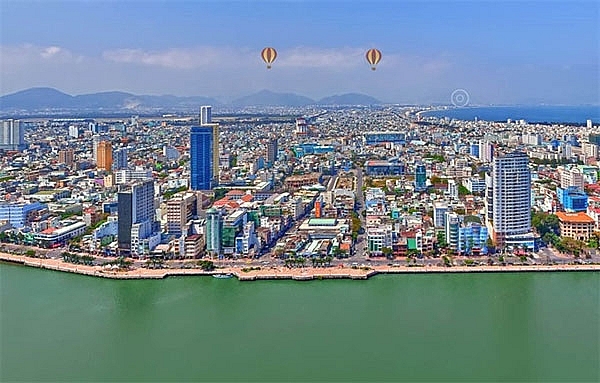Da Nang’s plan to get 'smart'
 |
Da Nang set a target to become the nation’s first smart city. What has the city done so far to achieve this goal?
Da Nang launched a series of programmes starting in 2012 designed to upgrade the city’s technical infrastructure. To that end, we made use of human resources and financial assistance from various agencies, including foreign organisations.
From the start, city authorities have co-ordinated with IBM. It did not take long before Vietnamese IT groups like Viettel, VNPT and FPT joined in, and international companies including the World Bank and JICA soon followed.
Foreign and domestic partners have expressed their desire to help us make Da Nang the first Smart City in Vietnam.
What has Da Nang done to make this concept a reality?
The first thing the city must do is win the support of people from all walks of life. Then we can ask for their input on how to improve the city.
We have introduced new models in some key economic and social areas, including transportation education health care, the environment and food safety. It is noteworthy that Da Nang has started to develop a common data system for the education sector, including school administration software. The goal is to gradually establish a database for students and teachers.
When it comes to food safety, we have already developed a system whereby the general public can call or text to retrieve information. In other fields, including transportation and natural resource management, advanced information technology has been applied to monitor management activities.
Thanks to support from the Viet Nam Post and Telecommunication Corporation (VNPT), two-way communication practices between the Municipal People’s Council and its affiliated agencies have been smoothed out. This was particularly noticeable at the 2017 APEC Summit.
One of the biggest challenges facing the city is the limited availability of funds. How has the government tried to solve this problem?
City authorities have developed a flexible road map to complete the transformation into a smart city. Our guiding principle is “multiple partners, one platform, one infrastructure, one policy and multiplied application.”
Of course, we have had to use financing from many different sources, including the national budget, official development assistance and investment from private partners.
We also invited foreign human resources experts to help train our local staff in areas they lacked expertise.
The city has already completed our 2014 plan to build a smart city; however, with the rapid recent development of IT, local authorities recognised the need to modernise our goals.
Starting early this year, city officials began to develop a new framework. With co-operation from Viettel Group and other partners, we have already taken some key steps. The city’s technology goals will always be linked with its socioeconomic development.
What do you think will be the most decisive factor for Da Nang moving forward?
The architectural framework for building a smart city is the same around the world. But each location has its own unique needs and priorities. That’s why we have developed our own plan.
Human resources are important to the success of our development. We have targeted tourism and hi-tech development as our two top priorities. But whatever we do, we always keep in mind that people are the key. That’s our goal.
As we all know, Da Nang is a destination on the World Heritage Path. That’s why any development must pay attention to preserving our heritage sites.
As we work to turn Da Nang into a smart city, the authorities will continue to listen to any and all suggestions on what measures would be most effective.
What the stars mean:
★ Poor ★ ★ Promising ★★★ Good ★★★★ Very good ★★★★★ Exceptional
 Tag:
Tag:
Related Contents
Latest News
More News
- Congratulations from VFF Central Committee's int’l partners to 14th National Party Congress (January 25, 2026 | 09:46)
- List of newly-elected members of 14th Political Bureau announced (January 23, 2026 | 16:27)
- 14th Party Central Committee unanimously elects To Lam as General Secretary (January 23, 2026 | 16:22)
- List of members of 14th Party Central Committee announced (January 23, 2026 | 09:12)
- Highlights of fourth working day of 14th National Party Congress (January 23, 2026 | 09:06)
- Press provides timely, accurate coverage of 14th National Party Congress (January 22, 2026 | 09:49)
- Press release on second working day of 14th National Party Congress (January 22, 2026 | 09:19)
- Minister sets out key directions to promote intrinsic strength of Vietnamese culture (January 22, 2026 | 09:16)
- 14th National Party Congress: Renewed momentum for OVs to contribute to homeland (January 21, 2026 | 09:49)
- Party Congress building momentum for a new era of national growth (January 20, 2026 | 15:00)






















 Mobile Version
Mobile Version